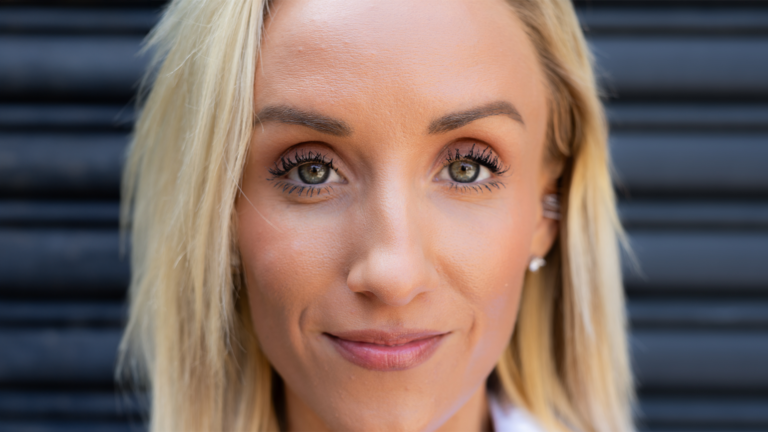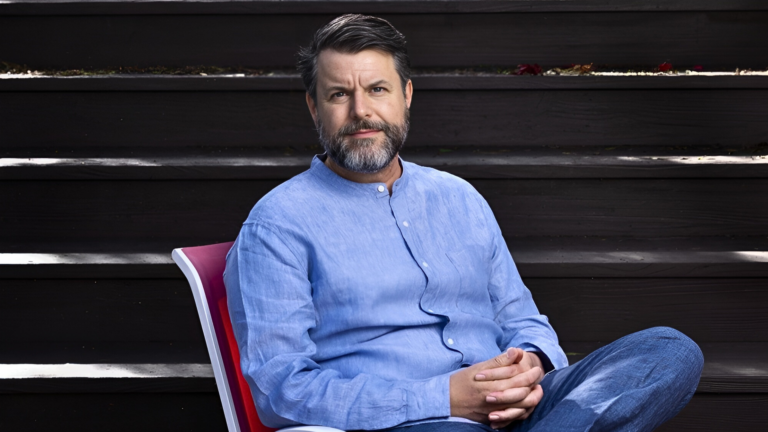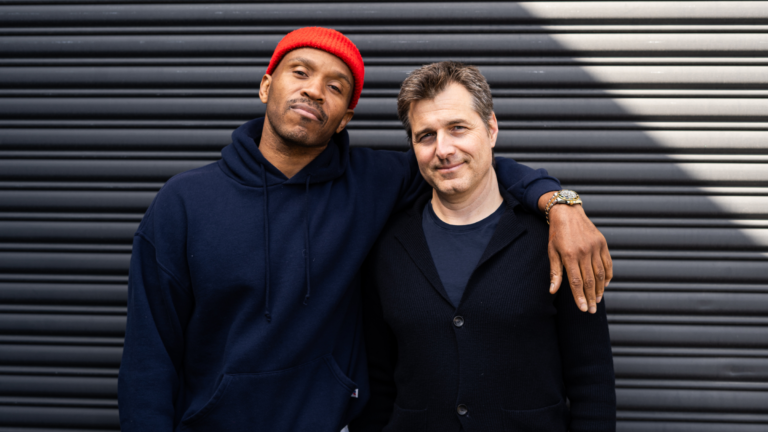This week’s conversation is with Henry Fraser, a talented artist, who paints stunning landscapes, animals, portraits, and more.
There’s one caveat — he draws using his mouth, as an accident years ago left him paralysed from the neck down.
So that would beg the question, how did he learn to paint?
He began by using a stylus on his iPad, which he held using his mouth to draw.
He then taught himself to use a pencil, and then paint, by fixing the utensils required a stick attached to his mouth.
Henry is also an author – he wrote The Little Big Things, which won Non Fiction Book Of The Year by WHSmith.
Losing your ability to move from the shoulders down at age 17 – that’s up there with the most difficult circumstances I can imagine someone having to deal with.
So with that context, I think you can get an idea of why I wanted to speak with Henry.
This conversation is about acceptance, resiliency, and gratitude.
It’s about making the best of a situation, no matter how bad things seem on the surface.
“Why can’t those little joys in our lives be things we recognize and we really embrace? And then when we have bigger joys, they’re even bigger and better than anything we’ve ever experienced.”
In This Episode:
How it began
I’m paralyzed from the top of my shoulders down. And, I have been this way now for just over 11 years. And I wasn’t born this way, it wasn’t a thing from birth at all. It was all started when I was 17 in a holiday with my mates. And we’re just first lad’s holiday away. First time abroad without parents, it’s a good, fun time, 17 year old boys, just looking to have fun. And, we’re in South to Portugal.
The moment his life changed
I decided to just go around to the water to cool down and where I run in slightly different part of the beach that day we’re on to the days previous and where I thought the seabed would continue to trail off and get deeper and deeper, I just dive forward and basically just come head first into an undulating seabed. And from that moment, that very flashpoint of a second, just everything in my life changed. And, I opened my eyes expecting to up at that point and go join my friends back on the beach. So, I’m thinking about the night out, what are we going to do, where are going out for drinks and all these things, but I open my eyes, it’s still in the water, just floating there. Just staring through this crystal clear water. Nothing but the seabed and my lifeless arms just dangling in front of me and at that point, I just couldn’t do anything.
What was he thinking during that moment?
In that moment, I’d probably never sworn so much my life. I was just, I guess, yelling into the water. It was a pretty kind of surreal movie experience where it’s this beautiful clear water staring at nothing. And we’ve got the light coming through the sea dappled, there’s sunshine on the seabed. But in my ears was just nothing. It was just the sound of the sea but it felt louder than anything I’ve ever heard of my life. It’s coming to this mad experience where everything was suddenly heightened to another extent. It was just that moment, yeah. That was just the was a moment in my head where I thought, “This is it. This is me done.” So yeah, it was terrifying. Absolutely terrifying.
Feeling the guilt of how his accident impacted those around him
I felt like I my friends and family into the situation with me. It wasn’t their choice, it wasn’t my choice, but we’re in this thing together. So it was having to think about them as well as myself and kind of made me look at them very differently and this… And I guess just appreciate especially my friends and family more and think more about gratitude and appreciation, all those things. So, I was battling with that a lot early on as well. All those hands and motions, and then having to understand that actually like I just kind of shouldn’t really be feeling bad for that. Not in a selfish kind of way, but cause that’s something I can’t control. That’s not my fault, it’s not my doing. This whole thing is something that happened.
How has his relationships with emotion changed due to the accident?
I’m much better now than I was. I was one of four boys, mum and dad, and with mum and dad at home. And it’s quite a testosterone filled house, competitive house. We’re very close as a family, but I guess we never really spoke about emotions. We never really dealt with those things so much before. Whereas now and everything I went through, dealing with emotions and letting go, letting those emotions out was a huge part of my recovery and others alongside me. It was a feeling we needed to feel. I’d learned in those months in hospital that first few weeks in hospital in fact, that this is a good thing. This is a big part of the healing for me. I need to feel this. I need to cry when my brothers come and see me, when my friends come and see, when my family comes to see me. I need to feel that. And now I guess I’ve dealt, pretty honest on my emotions, how I feel. There are times when I’ve given talks or spoken at events where I’ve got choked up, because I’m talking about an emotional moment. That has happened, a big moment in my life. And, I’m not ashamed of those things and I’m not going to hide from it. There’s an actual theme, is one thing I’ve learned is that, these feelings, me being scared and fearful at the start, me being emotional and crying, those are natural. Those are natural things. You can’t fight it. You just got to roll with it.
His low point
The first time in two months (post-accident) I’d seen my reflection. And pre-accident, I was this very fit, 17 year old boy, loved going to the gym, and now I was staring at myself in this mirror in this reflection. I’d lost four and a half stone, I think it is. Whatever that is in pound. Nearly 60 pounds, I guess. I was just nothing in this reflection. I had this big headrest, so I couldn’t even support my own head at that time, tube in my trachea through my throat, so I was still on a ventilator. These big arm rests for my balance, my whole clothes just hanging off me. And that was a horrible, horrible moment. The moment I go back to my room, mom’s friend left, I’ve got my mom’s put the coat around my bed and I lost it, I broke completely. And it was the first time in two months, I’d questioned, “Why me?” And it all hadn’t been a thought in my head until that point.
His turning point
After that moment, that night, and I was just lying in bed. And the early hours, I was just staring at the ceiling and I just thought to myself that that I’ve got no one to blame for what’s happened. I’ve got no reason to be angry for what’s happened. I may as well just get on with it. And those were genuine thoughts I had to myself that night, because this thing’s… Again, back to the emotion side of things. In that moment, that day, I guess I’d released everything I’d been holding in until that point, without physically realizing or mentally realizing it. I needed that release to let it all out so I could move on. And that was a massive turning point for me in how I was going to face challenges in the hostel. How I always wanted to do things, how I wanted to progress and just start working in ways that would be best for me and my family and everyone else, moving forward.
The road to recovery
It was to start thinking about how I’m going to progress. How I’m going to start. At that point, I thought, “I want to go out, I want to go home. I want to do these things.” So then I was thinking about, “Okay, what do I need? If I want to go home, I need to go down to the rehab ward, before I can get out of this hospital. Before I can go to the rehab ward, I need to get rid of my ventilator.” So I started thinking, “Okay, well I need to get rid of the ventilator. And then, I then reduced it down to these, basically, I reduced everything from that moment, from that end goal down to a 5 minute moment, 5 minute goal, on my first day of this new me, this new mindset that I was going to carry forward through everything, I guess. Through the rest of my life.
What’s his current mindset?
Everything I do is, the little big things. And I relate that to everything I do. It works so perfectly in how I see life, how I enjoy life, how I take on challenges and goals and things. So when I just reduced everything down to the goals in hospital, to get rid of my ventilator, I had to spend five minutes off the ventilator, but with an oxygen tank attached to the track shelter in my throat. And that was me breathing semi-independently, at that point. So that was five minutes in the whole day. The next day it was 10, 15 and then we got up to 20 minutes, then half an hour, 45, an hour and so on. And you know, these are tiny fractions of a day, but for me breaking it down into those small moments. My mindset, I wasn’t then thinking about getting out of hospital at that point, I wasn’t thinking about getting into the rehab board. I was just thinking about my next goal the next day. Or my goal in that day, when I woke up in the morning. I was really excited about it. I was excited about taking on that challenge and seeing what I could do. And every time I’d hit the goal each day. And I knew they’re manageable, I knew I’d hit them, but I made sure I recognized those moments and really enjoyed them and made sure we celebrated them.
Does he have bad days?
So one of the questions I get asked most regularly is, people go on to, “Surely you must have down days? You must have sad days?” And I can kind of handle, well, not handle, mentally handle that. Say, “No, I don’t. My accident doesn’t cause me sad days. It does generally, it doesn’t cause me to be done. And that’s not me being in denial. It’s me accepting what’s happened. It’s me knowing the situation I’m in, and I’m not wanting to change the situation I’m in at all. I wake up each and every day really, incredibly grateful that I’ve got incredible family, incredible friends. I get to wake up, each day I get to eat nice food. I get to go do jobs I like, jobs I enjoy. And I think when I think about my life was way off, I’m incredibly lucky, incredibly privileged to say I’m able to do those things. And, that all starts with gratitude and it really does start me off. And it’s something early on that I’d say to myself each morning. And it just starts me off in a better way. So, I’m going to start the day happy, so that, if something does, if frustration does happen, it kind of doesn’t hit me as hard because I’m already at a certain level. I’m not thinking about the frustrations. I’m not thinking about what the bad things that might happen in the day. I’m thinking about the good things that might happen, the good things I hope can do.
Where did his inspiration for art come from?
I’m much happier now than I was before the accident as a person and the positive things that have come since the accident have been incredible, and the art is one of them. The art is a huge, become a huge part of my life, because when I grew up, I really loved art. I loved just drawing stuff. I was drawing all the time, just building stuff, making stuff. I loved it. The first things I did were basic, but I loved it. Every single second. I would start using pencils and then a few months after that, I started actually painting properly. And the joy that that’s taken me back to say, the same joy I had when I was that five, six, seven, eight year old boy. It’s has been amazing. And without my accident, with everything I’ve been through, I wouldn’t have had that. I wouldn’t have found this happiness. I wouldn’t have had that same joy I’m having right now.
Acceptance
I’ve had to accept I’ve got to relinquish a lot of my life and put it in the hands of other people to move me, to dress me, to brush my teeth, feed me, to give me a drinks, so all those things. And accepting that loss of independence has actually made me far more independent than I’ve ever been in my life. It’s kind of independent dependence that I have now. And the fact that I accept that I can’t do those things, I can’t do those physical activities myself. So I’m not going to worry about those. I’m not going to think about those. I’m going to still think about, you know, the old adage of control, the controllables thing, you know, I can still control who I am, I can still control my thoughts, my opinions. I’m not relying on people to speak to me, to be tenacious for me to do those things for me. That that’s still me. And allowing myself to think that way is really, really how we’ve got to focus in on, more narrowly on my life and things I can control and ultimately then, what I can do with my life and then I can always look at the things I can do moving forward. And it really changes the mindset into a far more positive way.
How does he practice gratitude?
Obviously like everyone else, I get the same frustrations in our day-to-day lives. But for me, I would always ask myself the question, “Why?” If something’s annoyed me or something’s happened, in my head go, “Why? Why am I feeling this way?” And I always make sure I come out with two answers at the end of it and two options. And if it’s one, if one option is something I can’t change in my head, I have to say to myself, like I have to actively tell myself, “This has happened. I can’t change it. I’ve got to go move on from it or do something different or change, or just do something different.” I have to actively tell myself these things. And if I ask myself why, and then I answer I can change something, then I actively go out and change it. Whether it’s talking to someone or my careers or my family, I tell them something that has annoyed me, or that needs changing or something. And I tell them. I don’t let it sit on me, or dwell on me.
It all comes down to…
Acceptance
Mastery is…
Knowing yourself
Success is…
Knowing what makes you happy
Failure is…
A lesson
If he could offer one gift to humanity…
Teaching people how to be happy for the little things, hundred percent.
What is his greatest hope for others?
The words that I’d like to give to everyone and say to people and it’s the final paragraph it’s how I end my book actually. I end my book by saying is, I go, “Life is much simpler and much happier when you always look at what you can do not what you can’t do.” And for me, I guess that’s everything I speak about. Everything I do reduces down to those few lines. And the very final line of the book is just, “Every day is a good day.” And I generally believe that in our lives in what we do, we can make every day a good day, by just doing certain things that… We find our own ways, and I found mine, but I genuinely believe we can make every day, a good day. And I hope that all of you are able to find that. And it doesn’t happen straight away. It’s not an overnight thing. It takes time. It takes patience with yourself, patients with others, but it’s worth it. Hang in a bit, it’s is worth it. And it might be tough at the start, and it will be tough, but stick with it. And every day is a good day.


